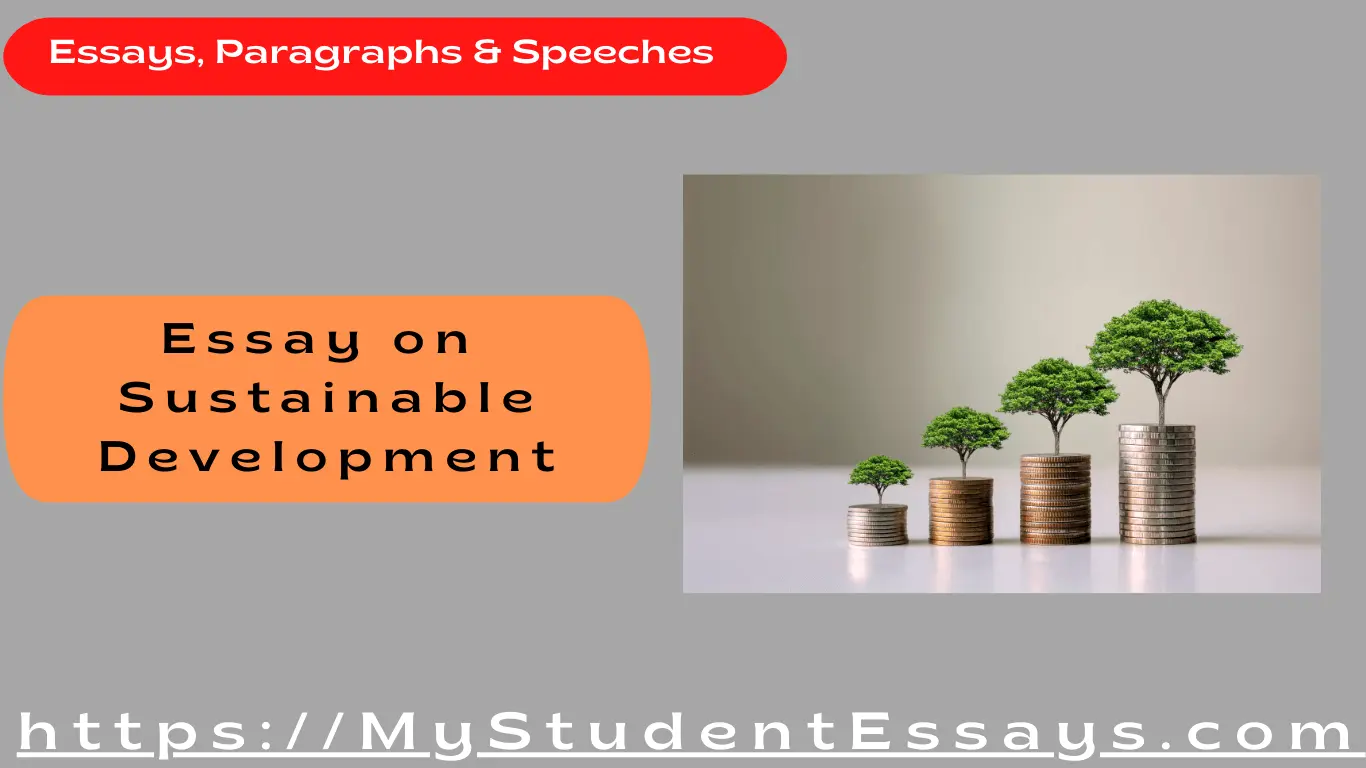The Sustainable Development is all about a wholesome development in all areas to improve the life standards, preserve nature and to live with peace and harmony. The following Essay talks about the Sustainable Development, its meaning, concept and importance of Sustainable Development for human life
Essay on Sustainable Development- Concept, Meaning & Importance for human Life
Sustainable development pertains to the plans, set of actions, jointly agreed upon, to conserve and improve the quality of human life and the environment without compromising future generations’ ability to meet their own needs. It therefore refers to the need for a shift in development paradigms from an unsustainable linear model, where resources are extracted, used and then discarded, to a more sustainable circular model that conserves and renews resources.

Concept of Sustainable Development
Sustainable development rests on three pillars – economic, social and environmental – which are often referred to as the triple bottom line. Achieving sustainable development requires balancing these three pillars in a way that meets the needs of present generations without risking the future generation.
>>>> Read Also: “Paragraph On Nature For Students”
The concept of sustainable development has been around for decades, but it gained prominence in 1987 with the publication of Our Common Future, also known as the Brundtland Report. The report, prepared by the World Commission on Environment and Development (WCED), defined sustainable development as “development that meets the needs of the present without compromising the ability of future generations to meet their own needs.”
Since then, sustainable development has become the rallying cry of environmentalists, social justice advocates and others concerned about the future of our planet. In 2015, all 193 member states of the United Nations adopted the 2030 Agenda for Sustainable Development, which includes 17 Sustainable Development Goals (SDGs). The SDGs are a blueprint for achieving sustainable development in all its dimensions – economic, social and environmental – by 2030.
Despite the growing global consensus on the need for sustainable development, implementation has been slow and uneven. A number of barriers to implementation have been identified, including lack of political will, inadequate financing, lack of knowledge and awareness, and conflicting priorities among different stakeholders.
There is no one-size-fits-all solution to achieving sustainable development. Each country must tailor its approach to sustainable development to its own specific circumstances and needs. However, a number of general principles have emerged that can guide countries in their efforts to achieve sustainable development.
Sustainable Development for India:
India is a rapidly developing country with a population of over 1.3 billion. The country faces many challenges in achieving sustainable development, including poverty, illiteracy, malnutrition, environmental degradation and climate change.
In recent years, India has made progress in some areas of sustainable development, such as reducing poverty and increasing access to education and health care. However, much more needs to be done to meet the country’s development goals.
There is a need for greater political will and financial resources to implement sustainable development initiatives in India. In addition, there is a need to raise awareness of sustainable development among the general public and create more coherent and coordinated policies at the national level.
>>> Related Post: ” Essay on Recycling”
Conclusion
Therefore, sustainable development is a very important concept that needs to be understood and implemented if we want to preserve our planet and its resources for future generations.
